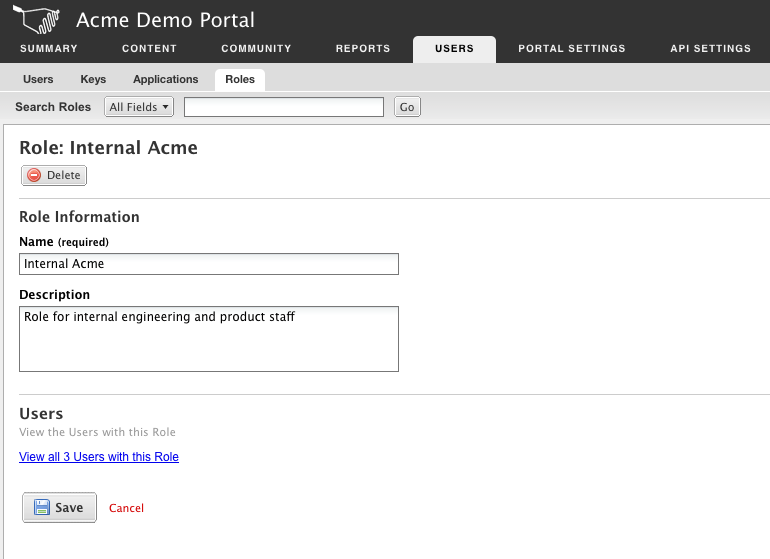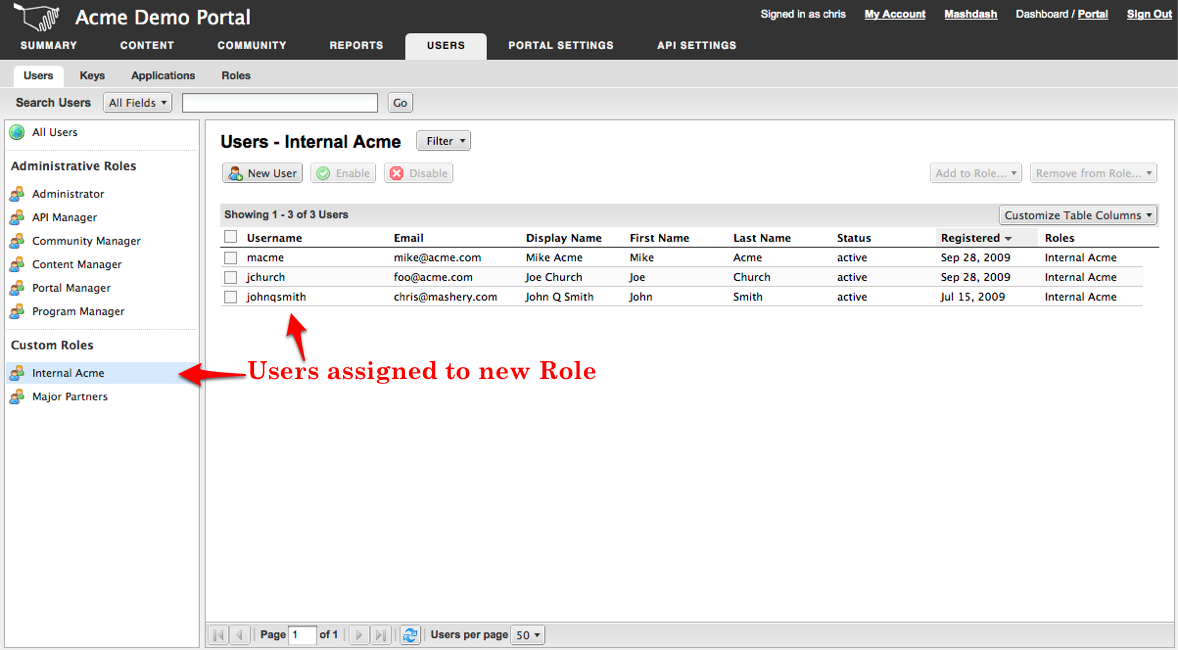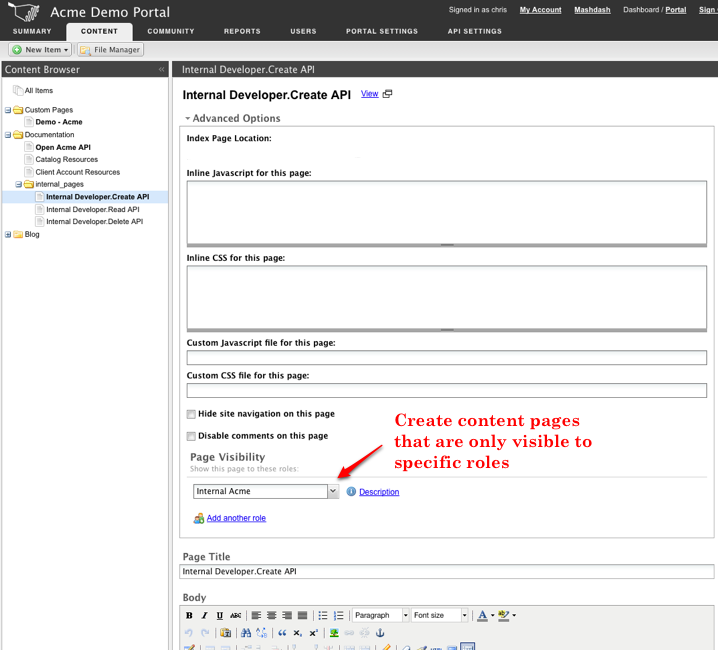Boomi Cloud API Management Developer Blog
New Feature: Roles!
We're pleased to announce the release of our new Roles based access control capabilities in the Developer Portal!
It has been interesting to be part of our customers' API programs as they continue to grow and mature. One clear trend we've seen is that many APIs eventually have both external and internal benefit. Some customers start with opening external access for app development as the goal and find unexpected valuable internal uses. For example, we saw a large customer find a sister site had been screen scraping their content, but started using the API as a better way to integrate (rightly so). They noticed and added a few private data elements for them and drove significant savings in the end.
Another interesting set of use cases has been private beta programs. Many times this has been the usual early development phase for a new program. However, increasingly, we see mature programs extending their API and want to expose their new version or methods to a limited set of beta developers. Makes total sense.
One of the features that emerges in each situation is a need to control which content pages users have access to. You want your new beta only methods to be viewable to beta partners, but nobody else to reduce confusion. Or you want to have internal documentation pages for your colleagues. But when you run large communities of developer partners, you need something like Roles to manage the complexity. This feature will help.
With this release, you will have the ability to create Roles, grant them content access rights, and then group your users into them. Additionally, we've packaged up a set of Mashery Dashboard Roles that govern which administrative Dashboard tabs your admins have access to.
Here's an example of using Roles for page access control.
Step 1: Create a Role

Step 2: Assign Users to Role

Step 3: Assign content pages to Roles to restrict access

Done! Now only users within the assigned "Internal Acme" Role will see the page. The navigation aids and search features of course also adhere to the access rights granted via Roles.
For the Dashboard Roles that we now support (e.g. Content Manager), we think you'll understand the Role name and the tabs that they have access to pretty quickly. However, if you click into each on the Roles tab in the Dashboard, you'll find a description and what functionality they grant access to.
As always, please let us know what you think!